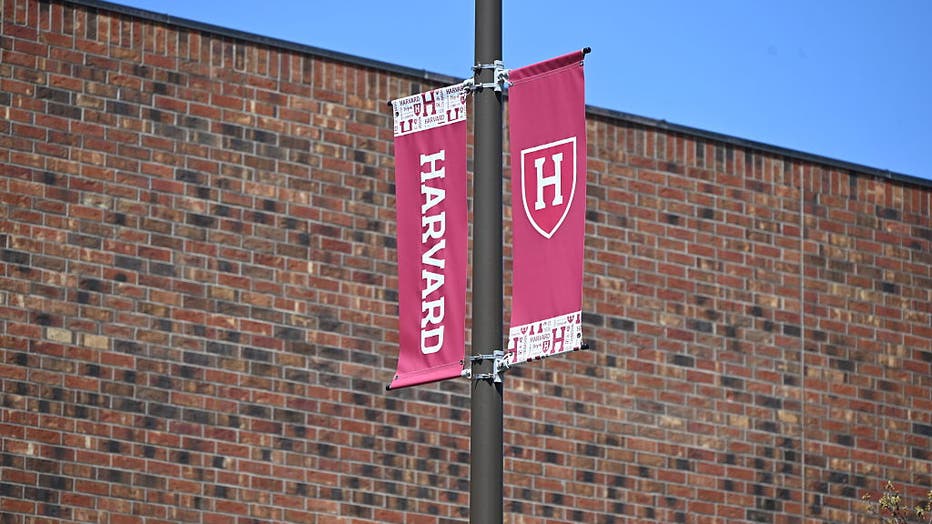White House moves to block foreign students from attending Harvard

Trump calls to revoke Harvard's tax exempt status
President Donald Trump says he's wiping out Havard's Tax exempt status. The president made the declaration via Truth Social. "We are going to be taking away Harvard’s Tax Exempt Status," saying "It’s what they deserve!" The announcement comes as President Trump continues to criticize the universities handling of antisemitism on campus.
WASHINGTON - In a significant escalation of tensions between the federal government and higher education institutions, the Trump administration has revoked Harvard University’s ability to enroll international students.
The Department of Homeland Security (DHS) announced the decision on Thursday, citing concerns over campus safety and alleged affiliations with foreign entities. This move affects thousands of current international students and has drawn sharp criticism from Harvard officials.
Why did the Trump administration revoke Harvard’s ability to enroll international students?
The backstory:
The DHS, under Secretary Kristi Noem, stated that Harvard had created an unsafe campus environment by allowing "anti-American, pro-terrorist agitators" to assault Jewish students.
Additionally, the department accused Harvard of coordinating with the Chinese Communist Party, alleging that the university hosted and trained members of a Chinese paramilitary group as recently as 2024.

FILE - A view of Harvard University in Cambridge, Massachusetts, United States, on April 22, 2025. (Photo by Kyle Mazza/Anadolu via Getty Images)
These allegations led to the immediate revocation of Harvard’s certification under the Student and Exchange Visitor Program (SEVP), which permits the university to sponsor international students for visas.
What we know:
Harvard currently enrolls around 6,800 international students, accounting for more than a quarter of its total student population.
The Department of Homeland Security’s action blocks Harvard from enrolling new foreign students, and those already enrolled must transfer or risk losing their legal immigration status.
Before the decision, DHS had asked Harvard to provide information about international students involved in campus protests or activities it considered dangerous—requests the university did not fully meet.
What we don't know:
DHS has not publicly released the evidence behind its claims that Harvard coordinated with foreign entities, including the Chinese Communist Party.
It’s unclear what legal steps Harvard might take to challenge the visa program revocation. The impact this decision may have on other U.S. universities with large international student populations remains uncertain.
What they're saying:
Harvard has condemned the DHS’s action as unlawful and retaliatory.
In a statement, the university said, "This retaliatory action threatens serious harm to the Harvard community and our country and undermines Harvard’s academic and research mission." The university is working to provide guidance and support to affected students.
What's next:
The revocation of Harvard’s SEVP certification is part of a broader campaign by the Trump administration against elite educational institutions.
Previously, the administration had frozen billions in federal funding to Harvard and demanded increased oversight of the university’s governance. The current situation raises concerns about the future of international students in the U.S. and the autonomy of higher education institutions.
The Source: This report is based on information from the Associated Press and statements made by Harvard and White House officials. This story was reported from Los Angeles.

